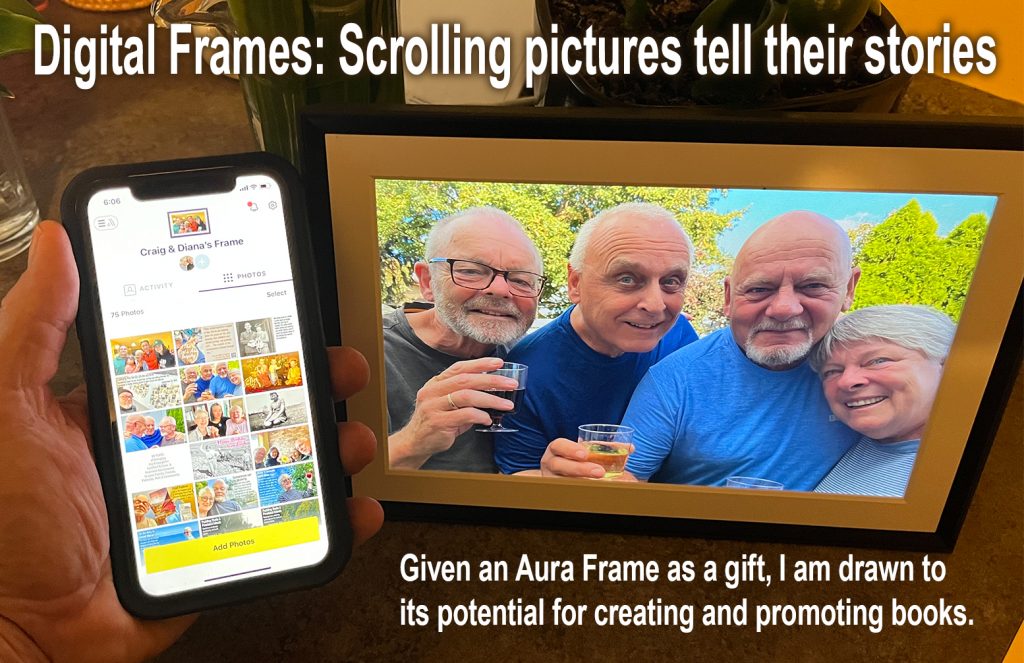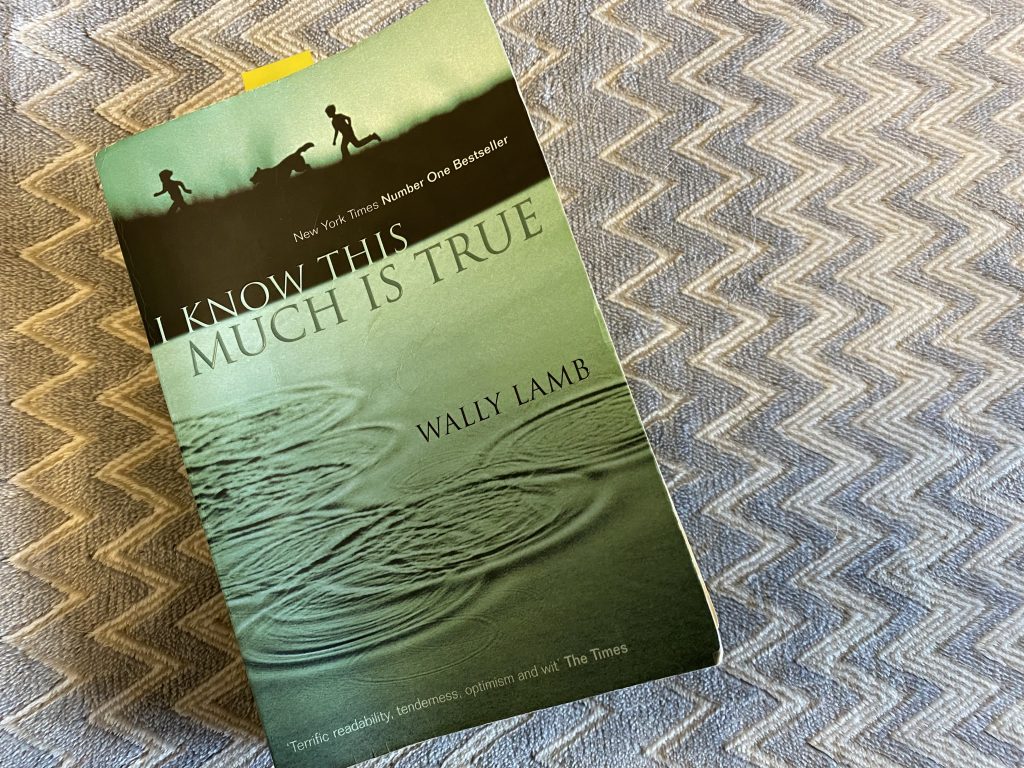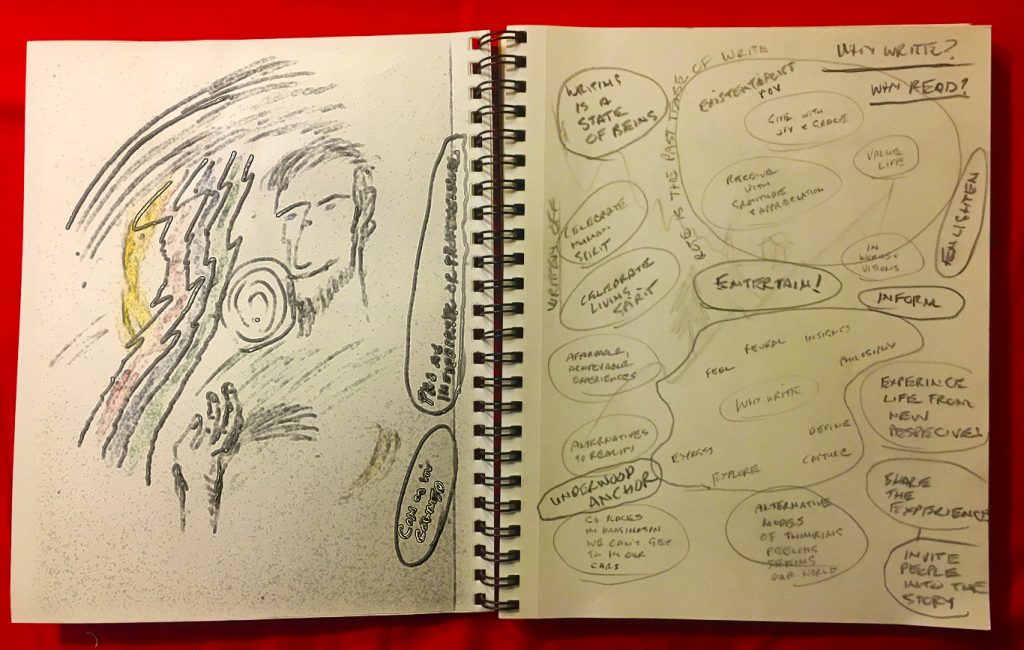
Every time I walk through our dining room into the kitchen, my eye is drawn to the Aura Frame, strategically placed on the countertop between the two rooms—our son Ian gave it to me as a Father’s Day present. Most of the images that scroll through the screen are family shots—my sister’s birthday, me and my brothers getting together for the first time in years, a deer caught munching our garden flowers.
The screen and the online cloud it’s connected to are becoming a repository of photo-memories—images that remind me and others on our family network how lucky we are and the wonderful lives we lead. But it didn’t take long for me to perceive literary possibilities for the technology, and the more I consider its potential, the more excited I become about digital frames for creating and promoting my books.
Before I get into that, though, I need to give you a thumbnail of my status as an author. I’ve had a couple of books published by Thistldown Press—since gone out of print—and remain an unknown outside a small circle of readers and fellow writers. I’ve based my creative and promotional strategies on that reality, which means: I’ll continue to submit some manuscripts to established publishers; at the same time, I will self-publish most of my books; my promotional strategy in either case will rely heavily on direct, face-to-face sales to readers, as well as producing, promoing, and selling my work on Amazon through Kindle Direct Publishing.
How does a digital frame fit into that picture?
I’ll zoom in on a scenario that clicks for me. Imagine yourself at a book fair. You’re engaged in conversation about your recently released thriller with one person, but others are scanning your selection of titles. What if you had a digital screen set up at one end of the table, cycling through images of your books, including back-cover descriptions of the stories and testimonials? What if those browsing readers could tap the frame and launch a video reading from a book they’re interested in?
Does frame-tech have a creative slant? I think so. A book I am planning, under the working title Realta Road, will be set in a Rialta RV, whose owner—a bereaved husband—is driving across Canada. He and his wife had planned the trip for years as a retirement gift to themselves, but she succumbs to a sudden cancer just before they are scheduled to leave. The structure of the story will be the husband’s ‘journal letters’ to his wife, describing in increasingly fraught detail the misadventures he’s getting himself into between Chemainus, on Vancouver Island, and St. John’s, Newfoundland.
Next summer, or the summer after, my wife and I will embark on our own cross-Canada journey—the second time we’ve done it. I’ll be taking pictures and videoing as we go, collecting images that will help me describe Realta Road settings and characters. Would a scrolling frame on my desk populated with those images help keep me on track once we’re back home and I’m immersed in writing?
If you’re interested in digital frames as a promotional and creative tool and would like to join in an exploratory workshop, let me know.




